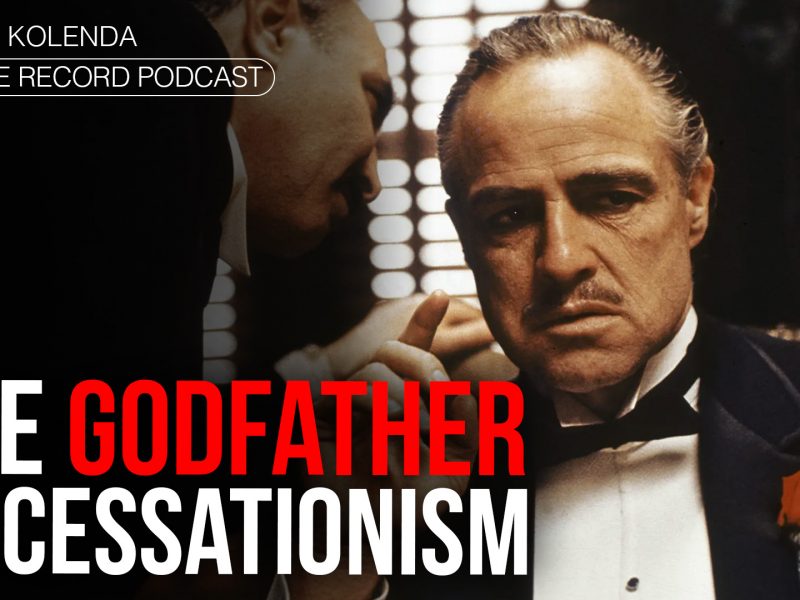In this episode of Off The Record, Daniel Kolenda continues his series on “The Heresy of Cessationism” asking the question in part 4: “Has the gift of speaking in tongues ceased?” By dissecting key passages from 1 Corinthians 14, Daniel challenges the Cessationist belief that glossolalia in the New Testament is referring exclusively to unlearned, human languages. Instead, he presents a compelling case that tongues, as described in Corinth, are primarily a spiritual language that “no one knows.”
Daniel also offrs a rebuttal to the common cessationist idea that there is no justification for enjoying tongues in a private, devotional, personal edification capacity. Finally, Daniel shows how the 1 Cor. 14:22 does not teach that tongues intended to convince Jewish unbelievers of the truthfulness of the Gospel as many cessationists claim.
To view the previous parts of this series about “The Heresy of Cessationism” visit:
 The Heresy of Cessationism 1 (The Scriptures)
The Heresy of Cessationism 1 (The Scriptures) The Heresy of Cessationism 2 (A Cascade of Lies)
The Heresy of Cessationism 2 (A Cascade of Lies) The Heresy of Cessationism 3 (Has Prophecy Ceased?)
The Heresy of Cessationism 3 (Has Prophecy Ceased?)
Link to Agnes’ testimony: https://www.facebook.com/watch/?v=679…
For this interpretation of verse 1 Corinthians 14:22, see Robert J. Gladstone, “Sign Language in the Assembly: How are Tongues a Sign to the Unbeliever in 1 Cor 14:20-25?” Asian Journal of Pentecostal Studies 2.2 (1999): 177-193. See also Gordon Fee, The First Epistle to the Corinthians (Grand Rapids: Eerdmans, 1987) 677-678 and John Paul Heil, The Rhetorical Role of Scripture in 1 Corinthians (Atlanta: Society of Biblical Literature, 2005) 200-202.
Scriptures referenced in the text are as follows:
- Acts 2 – The account of Pentecost.
- Acts 10 – The account of Cornelius’ House.
- 1 Corinthians 14:4 – “Anyone who speaks in a tongue edifies themselves…”
- 1 Corinthians 14:18 – Mention of Paul speaking in tongues more than the Corinthians.
- 1 Corinthians 14:19 – Paul’s preference for intelligible words in the church.
- 1 Corinthians 14:26 – Instructions for orderly conduct in the church.
- 1 Corinthians 14:27-28 – Guidelines for speaking in tongues with interpretation.
- 1 Corinthians 14:39-40 – The desire for prophecy and not preventing speaking in tongues.
- Isaiah 28:7-13 – The Old Testament passage referenced i1 Corinthians 14.
Contact:
Show Notes
- 0:00 Introduction
- 3:34 An overview of subjects to discuss
- 7:40 Four Winter Celebration in the 4th Century Roman Empire
- 8:10 Saturnalia (#1)
- 9:54 Sol Invictus (#2)
- 13:02 The birth of Mithras (#3)
- 13:29 Kalends (#4)
- 15:23 Influences on Christmas traditions today
- 20:47 Christmas replaces pagan holidays
- 24:00 Why December 25th was chosen for Christmas
- 31:41 The risk of parallelomania
- 34:22 Christmas from the Reformation to today
- 36:10 Christmas in Germany
- 38:29 Christmas in England
- 44:58 Christmas in Early America
- 47:52 The Modern Evolution of Christmas
- 51:29 From Saint Nicholas to Santa Claus
- 59:57 Christmas Tree Traditions
- 1:05:49 Traditions of mistletoe, holly and poinsettias
- 1:07:52 Recapping and the dangers of superstition
- 1:21:24 Paul's example in Scripture for avoiding pagan practices
- 1:29:55 The Mystery of the Magi
- 1:33:08 Conclusion






